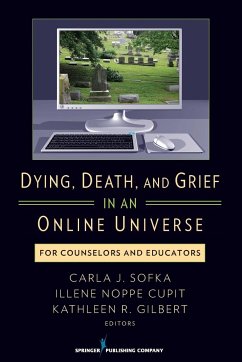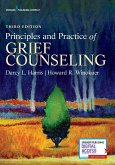" ""Historically we have always employed our foremost technology in the service of the dead. We have used whatever we had at our disposal to mourn, to support, to share memories and to tell stories. Carla J. Sofka, Illene Noppe Cupit, and Kathleen R. Gilbert? reaffirm that principle reminding us that this new digital world both offers dramatic technologies and creates considerable opportunities to deal with dying, death, and grief. The editors are extraordinarily sensitive to the multiple ways that this new technology has impacted upon the death system or the ways that a society organizes behavior around dying and death. "Dying, Death, and Grief in an Online Universe" is bound to be a classic."" Kenneth J Doka, PhD Professor, The College of New Rochelle Senior Consultant, The Hospice Foundation of America Modern communication technology has profoundly influenced societal practices and views about dying, death, and loss. This text, written for death educators, clinicians, researchers, and students of thanatology, provides current information about ""thanatechnology,"" the communication technology used in providing death education, grief counseling, and thantology research. The book offers a broad overview of how the communication technology revolution affects individuals coping with end-of-life issues, death-related and non-death loss and grief, and implications of the ""digital divide"" between those who are knowledgeable about and have access to modern technology, and those who are not. It describes the proliferation of online support groups and social network sites to cope with loss, and mechanisms for the memorialization and commemoration of loss. It also highlights blogging as a mechanism for storytelling and SKYPE as a communication tool during times of loss and grief. The unique issue of disenfranchised grief experienced by online community members is also explored along with ethical issues. Appendices provide guidance regarding the online availability of different types of informational support, tools to evaluate the integrity of online resources, and ethical standards. Key Features: Examines the ways in which modern communication technology has revolutionized societal practices and views about dying, death, and loss Offers time-tested strategies for providing death education online Addresses ethical issues related to availability and use of technology Explores the implications of the ""digital divide"" between technology and non-technology users in relation to issues of death and loss Analyzes how technology has shaped and changed thanatology research "








